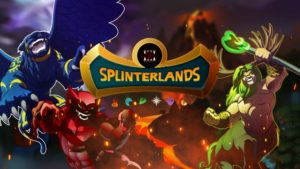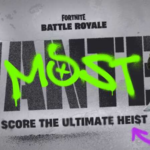Published on: 24/02/2022
Warner Music Group, Splinterlands to build play-to-earn games

Warner Music Group (WMG), an American multinational entertainment company, has formally announced its partnership with blockchain gaming creator Splinterlands.
The partnership, which WMG describes as a “first-of-its-kind deal,” will see the two firms work to give certain WMG artists access to build and develop play-to-earn (P2E), arcade-style blockchain games.
In terms of capability, Splinterlands and WMG’s collaboration will create mobile-friendly arcade-style gameplay that will allow for greater adoption. As a result, community building is easier than in typical play-to-earn games.
Splinterlands’ LinkedIn page elaborates on the game’s gameplay elements, stating that the card-focused experience “is powered by the most advanced, robust, and innovative Play To Earn ecosystem in the world.”
“Players are enabled to own their in-game assets,” according to the LinkedIn description. “Trade on numerous marketplaces across multiple blockchains. Play on the mobile app or straight from your desktop’s internet browser. Earn by winning battles, competing in leagues, or participating in tournaments.”
Splinterlands is a fantasy digital card game created on the Hive blockchain, but players must convert Splinterlands NFTs to the WAX blockchain for secondary sales. NFTs are one-of-a-kind cryptographic tokens that operate on a blockchain and represent ownership of an asset—in this example, in-game assets.
Splinterlands has had 450,000 regular gamers and 1.8 million registered users since its introduction in 2018. According to DappRadar data, it was also the most popular blockchain game last month.
Revolutionizing streams of revenue
WMG’s chief digital officer and executive vice president of business development, Oana Ruxandra, highlighted that the blockchain games built with the Splinterlands team will provide new sources of revenue for artists and the label.
“I don’t think we can underestimate how massive the opportunity around P2E gaming is,” Ruxandra said.
Meanwhile, Splinterlands CEO Jesse Reich stated that the record label is “innovating the music industry to meet the standards set by Web 3.0 community members.”
Although Reich did not specify what those standards are, several musicians have attacked the conventional music industry and formed startups to provide new pathways for visibility and profitability without the involvement of large labels.
Sound, for example, is a company founded by David Greenstein, the son of Sirius XM President Scott Greenstein. In December, it acquired $5 million from Andreessen Horowitz and personalities such as 21 Savage, Holly Herndon, and Trevor McFedries.
Sound provides artists with a new opportunity to be recognized without the need for a label, as well as the ability for listeners to purchase tracks as NFTs. Sound has paid out nearly $600,000 to artists since its inception. Musician 3LAU’s Royal is a competitive NFT music firm that uses NFTs to give musicians a larger share of music revenue.
Other similar ventures in the entertainment sector
Aside from the venture with Spliterlands, Warner Music Group also collaborated with The Sandbox to develop a virtual performance venue last month, and some of the big label’s stars have scheduled appearances in digital realms. Meanwhile, Peloton launched Lanebreak, its “first gaming-inspired experience,” a week ago, with WMG as a “launch partner.”
Another example of a similar initiative is Atlantic Records-affiliated Ava Max, who held a Roblox party to promote her first album, while also premiering an augmented-reality event in collaboration with Coca-Cola. Those who use their phones to scan a can or bottle of the new Coke Starlight will be able to watch the singer-songwriter perform a trio of songs.
-
Esports // 2022-02-23
LEC 2022 Spring Week 6 Recap



